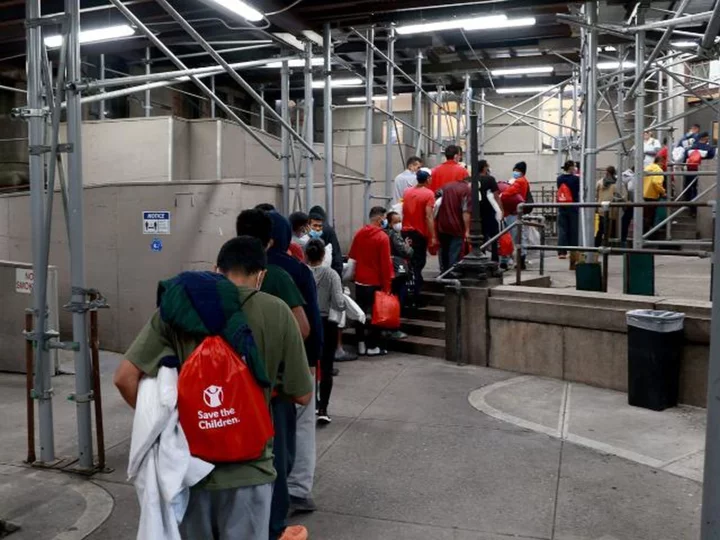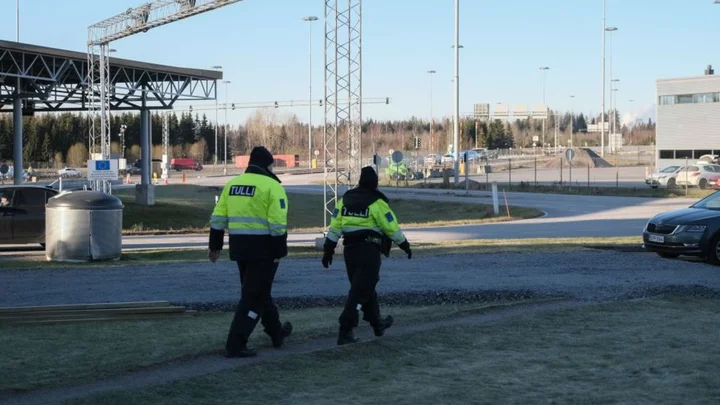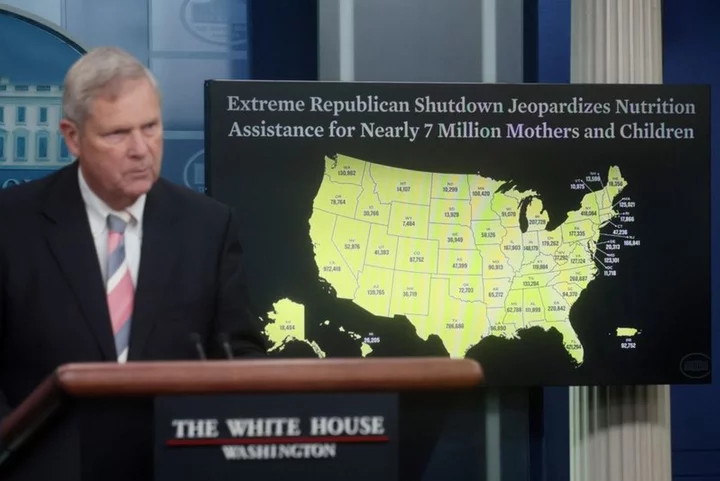Migrant families staying in New York City shelters will be required to leave those facilities after 60 days and reapply for placement, according to a new rule announced by Mayor Eric Adams on Monday.
The move is the administration's most significant attempt to date aiming to reduce resources dedicated to more than 64,000 migrants currently in the city's shelter system.
"As the city still seeks further and timely support from federal and state partners, it will begin providing 60 days' notice to families with children seeking asylum to find alternative housing along with intensified casework services to help them explore other housing options and take the next steps in their journeys," the administration said in a statement.
A spokesperson for Adams told CNN the new rule will take effect next week and notices would be given out on a "rolling basis" starting with families who have been in the system the longest.
More than 126,000 migrants have arrived in New York City since last spring and the city estimates there are 64,100 migrants currently in the shelter system. A spokesperson for the mayor did not respond when asked how many of the more than 64,000 people currently in the system are families with children.
Possible impact of the new NYC rule
The 60-day rule is likely to displace tens of thousands of homeless migrant children who are currently enrolled in the city's public school system and could create new difficulties for families who may be forced to relocate to another shelter not near their children's school.
As part of the change in policy, the city is also expected to open a new shelter site at Floyd Bennett Field in the coming weeks designed to serve about 500 families with children who are seeking asylum. Floyd Bennett Field, located in Brooklyn, will house families in a "semi-congregate setting," and provide "privacy dividers with locks."
Critics concerned change will impact migrant education, medical care
The Legal Aid Society and the Coalition for the Homeless criticized the new change over fears how it could, among over things, impact educating migrant children.
"This new policy, along with the City's announcement that it will place families with children in semi-congregate settings at Floyd Bennett Field, will disrupt access to education, which has provided much needed stability for our newest neighbors and also cause chaos for school administrators. We are also concerned about access to medical care and other vital services," the groups said in a statement.
As it struggles to keep up with the demand, the city has issued emergency orders that allow it to bypass several rules and laws that govern how it manages the homeless shelter populations and the standards they are required to keep up -- such as guaranteeing access to stoves and private bathrooms for families, access to clean linens and beds that are properly spaced out in congregate settings.
Families are not allowed to be housed in congregate settings, nor does the city set a limit on how long a homeless family can stay in a city shelter.
Advocates warned the city is pushing the limit when it comes to following the law and litigation could soon follow.
"Sheltering families with children in cramped and open cubicles at Floyd Bennett Field not only raises serious legal questions, but runs afoul of this Administration's previous statements to provide safe and appropriate shelter to this extremely vulnerable population," Legal Aid and the Coalition for the Homeless said in a statement. "Private rooms, not open cubicles, are needed to ensure the safety of families with children and to reduce the transmission of infectious disease, among other obvious reasons."
It's not the first time the Adams administration has limited migrant stays in city run shelters.
Last month, the city imposed a new rule forcing migrant adults to leave the shelter system after 30 days. After vacating, adults are sent to the Roosevelt Hotel in Manhattan, which has become a one-stop center for migrants in need of city services. Once at the hotel, adult migrants are required to reapply for shelter, a complicated process that is often long and results in hours-long wait times, which advocates say is disruptive to people who are already struggling to establish themselves in a new country.









